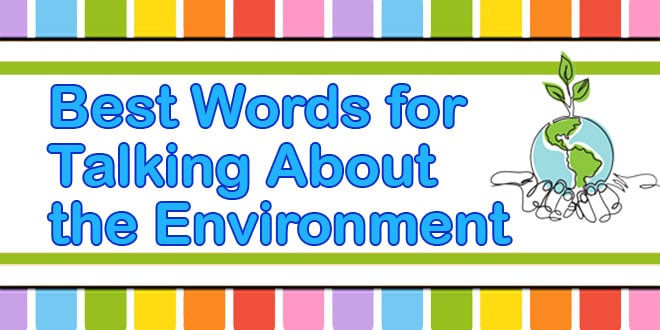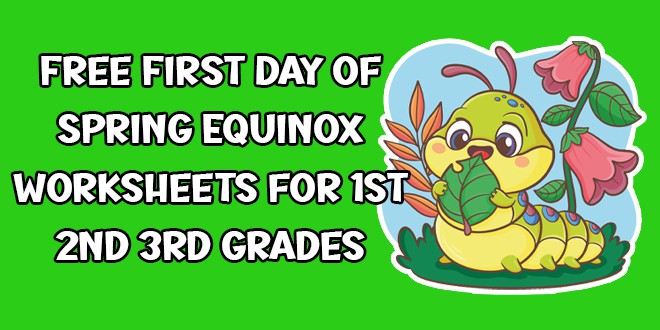You have reached this interesting post as you might be among those who have asked the following questions: what are words for talking about the environment? what are 50 words about environment? environment words list? 20 words related to environment? environment words in English? 30 words associated with environment? words related to nature and environment? words related to environment protection? The Environment Vocabulary Word List.
In general, learning and understanding words associated with environment are of primary importance to language learners who intend to master the English language. In fact, learning words and expressions about issues like pollution, climate change, global warming, wildlife protection, and endangered species will help ESL learners express their opinions and concerns in English about the environment.
Here are some useful words and expressions with their meanings to use to talk about the environment.

30 Words for Talking About the Environment
1. Global warming
gradual and long-term heating of Earth’s climate system observed since the pre-industrial period (between 1850 and 1900), generally attributed to the greenhouse effect caused by increased levels of carbon dioxide, chlorofluorocarbons, and other pollutants.
2. Climate change
long-term shifts in temperatures and weather patterns globally or regionally. These changes are attributed largely to the increased levels of atmospheric carbon dioxide produced by the use of fossil fuels.
3. The environment
the surrounding natural world in which a person, animal, or plant lives or operates.
4. pollution
the introduction or addition of any substance (solid, liquid, or gas) or any form of energy (such as heat, sound, or radioactivity) to the environment.
5. Recycling
the action or process of converting waste into reusable material.
6. The ozone layer
the thin part of the Earth’s atmosphere that absorbs almost all of the sun’s harmful ultraviolet light.
7. C02 (carbon dioxide)
a colorless gas having a faint sharp odor and a sour taste, formed during the combustion of any material containing carbon and is an important greenhouse gas.
8. Pesticides
any substance used to kill, repel, or control certain forms of plants or insects that are considered to be pests.
9. The greenhouse effect
a process that occurs when gases in Earth’s atmosphere trap the Sun’s heat. This process makes Earth much warmer.
10. Deforestation
refers to the act of cutting down trees in forests across the world. Forest areas are lost for other uses such as agricultural croplands, urbanization etc.
11. Conservation
prevention of wasteful use of a resource. saving and protecting the environment.
12. Endangered species
any species of animal or plant that is seriously at risk of extinction.
13. Windfarm
an area of land with a cluster of wind turbines for driving electrical generators.
14. Rainforest
a tropical forest, usually of tall, densely growing, broad-leaved evergreen trees in an area of high annual rainfall.
15. Ecosystem
the complex of living organisms, their physical environment, and all their interrelationships in a particular unit of space.
16. Fossil fuel
a natural fuel such as coal or gas made from decomposing plants and animals.
17. Renewable energy
energy from a source that is not depleted when used, such as wind or solar power, waves, geothermal heat, biomass, etc.
18. Drought
a period of dryness especially when prolonged resulting in a water shortage.
19. Atmosphere
a thin layer of gases surrounding the earth or another planet.
20. Biodegradable
an object capable of being decomposed by bacteria or other living organisms; without causing pollution.
21. Radioactive waste
a type of hazardous waste that contains radioactive material, produced by nuclear reactors, fuel processing plants, hospitals, etc.
22. Solar panels
a panel designed to absorb the sun’s rays as a source of energy for generating electricity or heating.
23. Biodiversity
the variety of life in the world or in a particular habitat or ecosystem.
24. Carbon monoxide
a colorless odorless very toxic gas CO that is formed as a product of the incomplete combustion of carbon.
25. Ice caps
An ice cap is a thick layer of ice and snow that covers large areas of land, particularly the North and South Poles.
26. Groundwater
water that is held underground in the soil or in pores and crevices in rock.
27. Smog
refers to smoke fog, i.e. fog made heavier and darker by smoke and chemical fumes.
28. Wetland
land consisting of marshes or swamps; saturated land.
29. Erosion
It is a geological process, gradual destruction and removal of rock or soil in a particular area by rivers, the sea, or the weather.
30. Compost
a mixture of various decaying organic substances, such as dead leaves, manure and grass used for fertilizing soil.
| You might also like: |
| Paragraph On Noise Pollution In 100 Words: Best Noise Pollution paragraph In English For Students Best List of Words and Expressions for the Summer: Meanings & Examples+ Exercises |
Environment Vocabulary Reading Comprehension
1. Read the text carefully, then answer the questions
Years ago there wasn’t a problem with rubbish because things like plastic and disposable nappies hadn’t been invented. There wasn’t so much packaging on items you bought either. But now with everything so over-packaged wrapped and disposable we are suffering the consequences of far too much waste. The trouble is not everything can be recycled or will rot away. You used to be able to get a refund on glass bottles when you took them back to the shop. Now they are either collected from your house by the council or you can take them to a bottle bank.
The fact that paper can be recycled and is easy to dispose is great, but remember paper is made from trees, which are important to the environment. The rainforests have been slowly disappearing for a while now. We need them not just because it helps with the climate. They are important as like all plants they give us oxygen. They are also a home to many animals who rely on them for their survival.
The best waste is organic, dead leaves; carrot tops, onion skins and so on all rot down and make fertile soil. This in turn will help the plants and vegetables giving them much-needed food. So if you are able to have a compost heap in your garden you’ll be helping the environment and your garden will love you for it.
Acid rain is another serious problem it is damaging to plants and is caused by pollutants such as sulphur dioxide and nitrogen oxides. These come from the burning of coal, oil and gas.
Dropping litter is not just a lazy thing to do it makes work for other people, is bad for the environment and looks ugly. So think before you drop litter either bin it or keep it and then bin it.
When rivers and seas are polluted by waste we are not only stealing their beauty but were spoiling it for ourselves too. Our health can also suffer. Sadly accidents do occur; oil slicks sometimes happen and wreck the environment. Animals tend to suffer the most from these incidents. We should really have in place something that will prevent so much destruction, rather than just waiting for it to happen, then trying to clean up the damage.
Nuclear waste has been the cause of controversy over the years. Radioactive material leaking out would be very serious indeed, it can cause real harm. This is why it is the most worrying.
Although we are trying to stop the hole in the ozone layer getting any bigger, nuclear waste is still a serious problem. The ozone layer protects us from harmful ultra – violet rays. Its hole has been caused by chlorofluorocarbons (cfc’s) a chemical that was found in some products. Refrigerators used to contain them. So do we care enough about the earth we have inherited and our passing onto future generations? Or is it now all too late to do anything? Each one of us can make a difference and each and every one of us is responsible to the environment. It takes care of us; we should take care of it.
Adapted from Source: http://www.childrenswebmagazine .com/Environment.htm
2. Say who or what the following words refer to.
1. them ———————————————
2. they ———————————————-
3. them ———————————————
4. us ————————————————-
5. who ———————————————–
6. them ———————————————
7. these ———————————————
8. it ————————————————–
9. their ———————————————-
10. these ——————————————–
11. we ———————————————–
12. them ——————————————–
13. it ————————————————
3. Say if the following statements are True or False. Correct the false ones.
1. Some years ago diapers weren’t used. —————————————————————–
2. Nowadays products are over-packaged. —————————————————————-
3. Some products are difficult to destroy. —————————————————————–
4. Both animals and humans need trees to survive. ——————————————————
5. Acid rain is caused by organic waste. ——————————————————————-
6. Ozone layer depletion and nuclear waste are two most serious problems. —————————
7. It’s useless for us to try and make a healthier environment. ——————————————




Leave a Reply